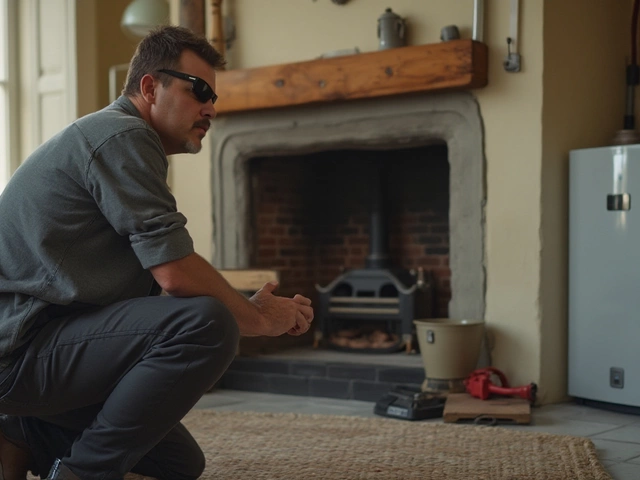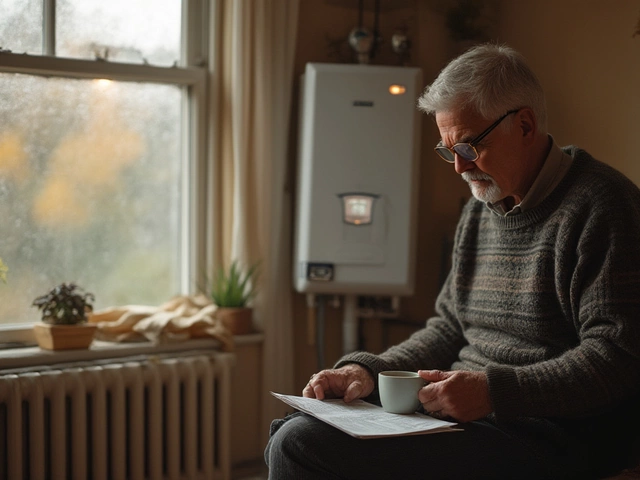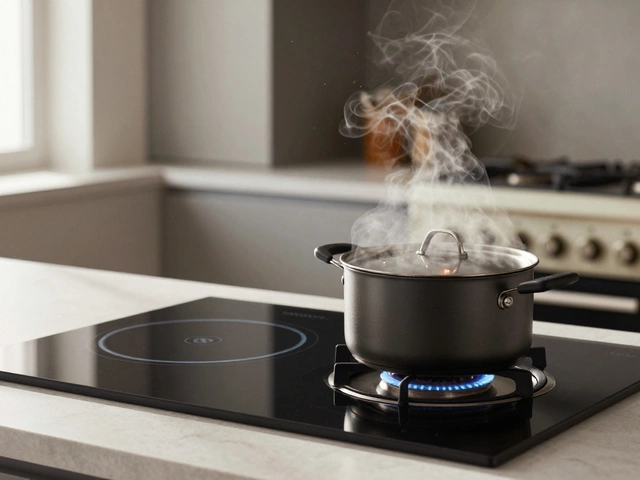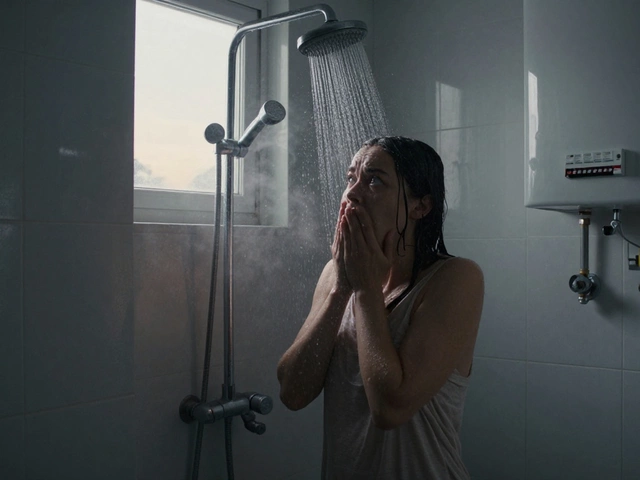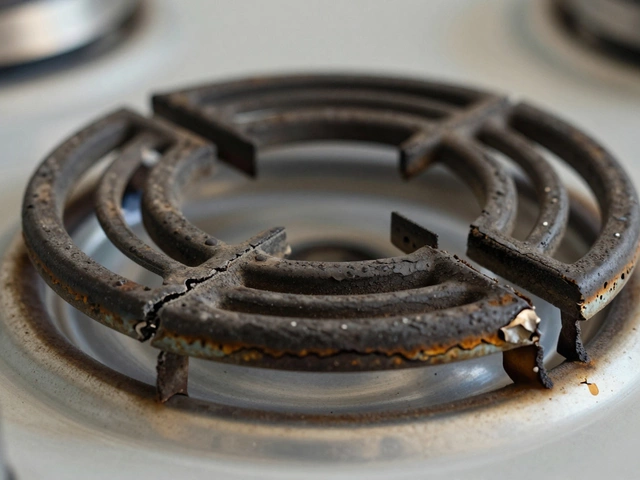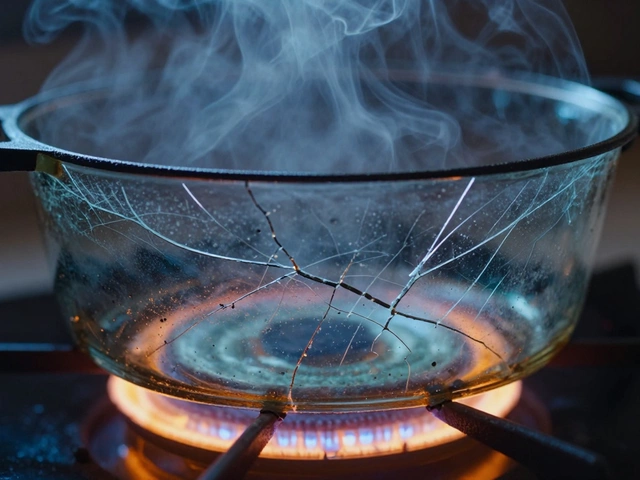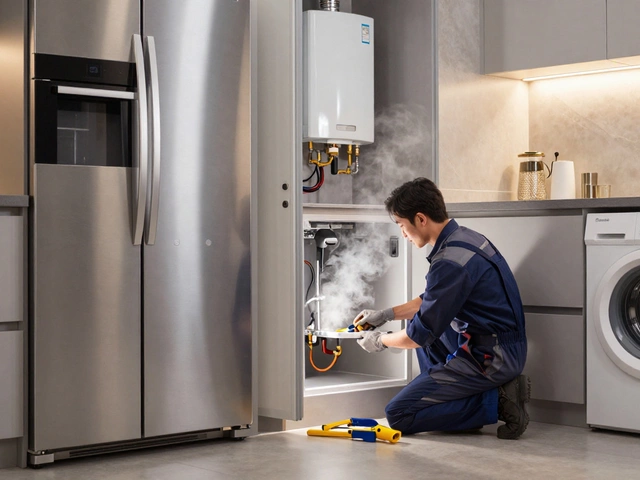Replacing a boiler is a necessity that often catches homeowners off guard with its financial demand. It's not just about purchasing a new unit; there are layers of reasons why the costs stack up. From the type of boiler chosen to the intricacies of installation, each aspect has a role to play in driving up expenses.
Understanding these factors is crucial not only for budgeting but also for making informed decisions that could save money in the long run. This exploration will shed light on why these costs are what they are, and offer some strategies to ease the financial burden.
- Factors Contributing to Boiler Costs
- The Role of Installation Complexity
- Choosing the Right Boiler: A Cost Analysis
- Hidden Costs in Boiler Replacement
- Saving Money on Boiler Replacement
- Future Benefits of a New Boiler
Factors Contributing to Boiler Costs
When it comes to replacing a boiler, one cannot ignore the various elements that dramatically influence the cost. The initial noticeable expense is the cost of the boiler unit itself, which varies greatly depending on the type and efficiency. High-efficiency boilers, while costly upfront, promise savings on energy bills, softening the financial blow over time. Type is another factor—a combi boiler could be more expensive than a conventional one, depending on the features and brand chosen. Yet, these upfront costs are just the tip of the iceberg.
The installation costs often surprise many homeowners, sometimes exceeding the price of the boiler itself. This is because installation involves complex procedures, including removing the old system, adjusting existing pipework, and meeting all regulatory requirements. The intricacy of installation can depend on the age and layout of your home, potentially requiring additional work to retrofit new systems into older infrastructure.
"Boiler replacement is not just about swapping out units; it often requires an overhaul of home heating architecture," states Robert Ashton, a renowned expert in home heating systems.
Beyond these apparent expenses lie the hidden costs that subtly add up during the project. Ancillary components such as thermostats, pumps, and piping can incrementally increase costs but are essential for optimal functioning. Without them, even the best boiler could underperform, resulting in higher energy bills. Additionally, the geographic location can influence prices significantly; urban areas might carry higher labor costs compared to their rural counterparts.
Let's not forget maintenance and ongoing costs associated with boiler replacements. Regular servicing is essential to maintain efficiency and lifespan, with costs varying based on the service provider and the specific needs of the boiler system. Also, today’s emphasis on eco-friendly systems might prompt homeowners to consider units that integrate renewable energy sources, like solar panels, which again require a higher initial investment.
Understanding the myriad factors that impact boiler replacement costs can prepare homeowners financially and mentally for what lies ahead. By weighing these elements carefully, one can ensure a smoother transition to a new heating system, optimizing both comfort and economy in the long term, while avoiding any unpleasant financial surprises.
The Role of Installation Complexity
When considering the hefty price tag of boiler replacement, one must not overlook the pivotal role that installation complexity plays. You might think that swapping out an old boiler for a new one is as simple as plug-and-play. But, much like fitting a square peg into a round hole, the process is often fraught with technical challenges and nuances that can push costs higher than expected. Every home is uniquely structured, with specific requirements that influence how the new heating system is installed. Factors such as the type of heating system, the design of your home, and existing plumbing all intertwine to complicate what could otherwise be a straightforward task.
To better understand, envision an older house with narrow access points and outdated piping. Retrofitting a new boiler into such a setup can resemble a complex, three-dimensional jigsaw puzzle. Installers not only need to maneuver the large boiler unit into position, but they must also ensure it connects with existing systems seamlessly. The challenges multiply if you're upgrading from a conventional boiler to a more modern, energy-efficient model. This kind of upgrade often requires additional plumbing work, reinforcing support structures, and perhaps even widening doorways, all adding to labor time and thus, labor costs.
"Factors like the age of the building, current state of plumbing, and even the dwelling’s location can greatly influence installation complexity and the resulting costs," says Andrew Williams, a home heating expert from HVAC Today Magazine.
Another vital element is the local regulations and safety standards that come with the territory of boiler installation. Changing out an old boiler isn’t just about updating your house—it’s about enhancing safety and adhering to building codes. This kind of compliance doesn’t come without its own price. Often, professional assessments and bespoke solutions are needed to meet these requirements, and that expertise doesn't come cheap. Installers have to navigate these regulations diligently, which can sometimes necessitate additional materials or consultations, furthering the expense for homeowners.
| Installation Component | Potential Cost Range |
|---|---|
| Basic Plumbing Adjustments | $500 - $1,500 |
| Structural Modifications | $1,000 - $3,000 |
| Code Compliance Adjustments | $500 - $2,000 |
For those looking to minimize these costs, intelligently planning the timeline and selecting the right type of boiler can make a significant difference. It's worth considering whether to opt for a system that aligns with your current setup, reducing the need for extensive modifications. Additionally, seeking multiple quotes and references from various professionals can offer insights into who might be able to provide the most cost-effective solution without compromising on quality or safety.
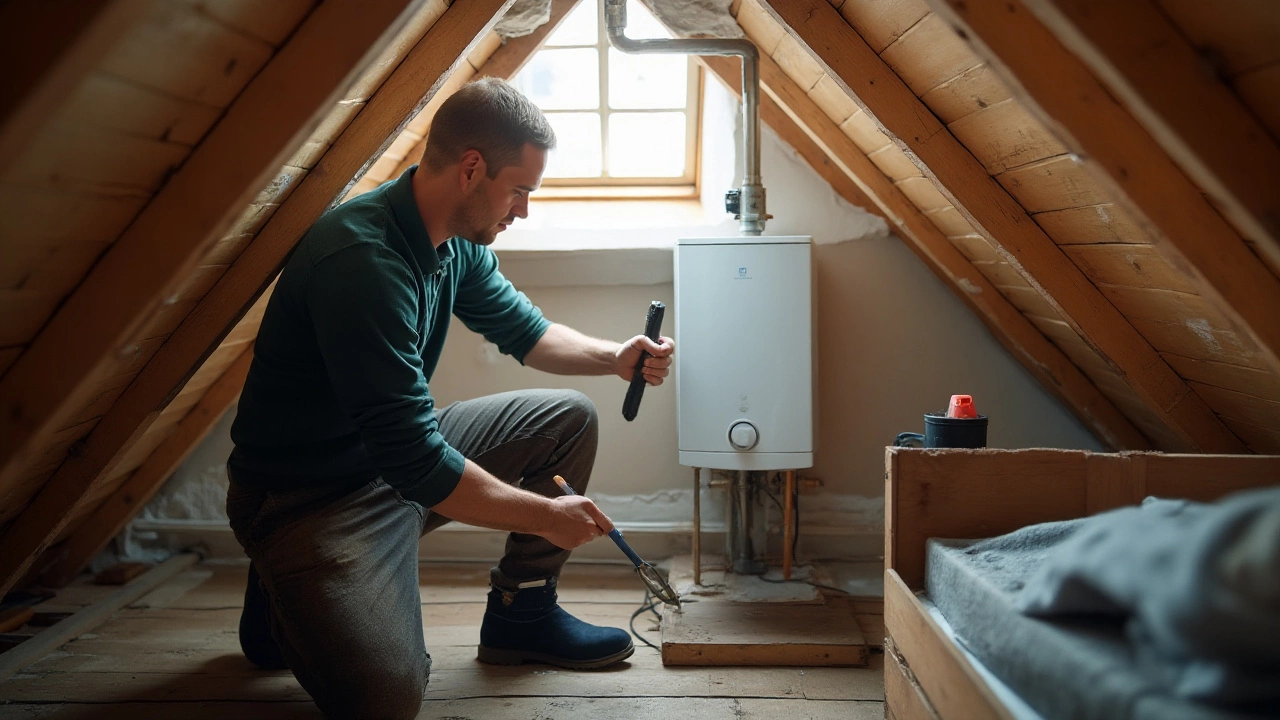
Choosing the Right Boiler: A Cost Analysis
The journey to finding the ideal boiler for your home can be likened to sifting through a meadow of wildflowers, each with its distinct charm and purpose. When evaluating the kinds of boilers available, it all boils down to the size of your home, your heating requirements, and, of course, your budget. There are primarily three types of boilers to consider: combi, system, and conventional. Each comes with its unique set of traits that can sway your decision. A combi boiler, for instance, is a compact choice, perfect for households where space is a premium. They heat water directly from the mains, offering the luxury of hot water on demand without the need for a tank. However, they might struggle in delivering uniform water pressure when multiple demands are placed simultaneously.
Then there's the system boiler, elegant in its operation. It stores hot water in a cylinder, ensuring a steady flow even when taps are turned on in different corners of your abode. This type might cost a tad more, but the peace of mind it offers during a morning rush can be worth the extra pennies. On the far end of the spectrum sits the conventional boiler. Ideal for larger homes with multiple bathrooms, it requires both a cylinder and a tank, taking up more space but offering reliable performance. The choice between these often hinges on the existing setup of your home. A conventional system may not be the simplest transition if your house isn’t already equipped to handle it.
Choosing a boiler isn’t merely a financial decision, it’s about investing in your family’s comfort and future energy savings," says Laura McIntyre, a heating systems analyst at HomeWarmth Research Institute.
Analyzing the costs associated with these boilers is key. On average, a new combi boiler can set you back between $2,500 to $3,500, including installation. System boilers vary more in price, often costing anywhere from $3,000 to $5,000. Conventional models can climb upwards of $4,000. One might wonder why these figures sway widely. The answer lies in the efficiency ratings, the brand names, and even the technological advancements integrated within the units. Boilers from high-end brands that boast superior energy efficiencies might demand a steeper upfront cost but often translate to savings in utility bills, proving their worth in the long haul.
A glimpse into the potential for energy savings can be eye-opening. According to data from the Energy Saving Trust, swapping an old boiler with a modern high-efficiency unit can sliver heating costs by up to 30%. Considering the temperature dips as years roll on, this can equate to savings of hundreds of dollars. For those keen on lowering their carbon footprint, choosing a boiler with a smart thermostat integration can optimize energy usage effortlessly, ensuring heating schedules are tailored around your daily routines. It's worth considering whether the boiler you have your heart set on is compatible with such smart tech, as this may influence your ongoing energy expenses.
Ultimately, selecting the right boiler replacement becomes a balancing act between initial costs and long-term gain. Delve into reviews, consult experts, and most importantly, give ample weight to your household's current and future needs. The goal isn't simply to replace but to enhance, making the task of choosing feel less daunting and instead, a step toward an efficient and cozy future.
Hidden Costs in Boiler Replacement
When you're considering a new boiler, the sticker price of the unit is just the beginning. Several often-overlooked costs can significantly add to the budget, catching many off guard. One of the first hidden expenses involves the labor involved in removing the old system. It's more than just unhooking and lifting; disposing of an outdated boiler, particularly if it's heavy or embedded in awkward spaces, can create additional costs due to time and required expertise.
A common surprise expense is the need for upgraded piping or modifications to existing plumbing. If a new boiler requires a different setup than the previous one, adjustments might be necessary. These adjustments ensure that everything operates safely and efficiently, but require not only added materials but skilled labor, all of which ramps up the expense. To make things more complicated, homes with older systems might need additional work to bring the entire system up to current standards.
Boiler replacement is also a prime time for unexpected discoveries within your system, such as aging radiators or connections that might not handle a new boiler's efficiency or pressure. In such cases, you'll find yourself facing the need to replace or repair additional system components. Additionally, the cost of the installation complexity is sometimes underestimated. If the new model requires a more sophisticated setup or is placed in a challenging location, these complexities can make the installation process more time-consuming and labor-intensive, directly translating to higher labor costs.
According to The Heating Hub, "installing modern high-tech boilers requires not only physical installation adjustments but sometimes even electrical upgrades, especially when integrated with smart home systems." This complexity is another layer that can add unanticipated costs.
Another silent cost can be found in regulatory and safety compliance. Adjustments may be necessary to meet the current building regulations, which change over time as technology and safety standards evolve. While these codes are in place to protect homeowners, making necessary changes after the fact can come as an unexpected expense, adding yet another item to the bill. Environmental permits or permissions may also be required, depending on where you live, contributing to this hidden cost.
With all these hidden expenses, the cost of replacing a boiler can quickly extend beyond the original quote. Awareness and preparation can cushion the financial blow. Seeking detailed quotes that include potential additional costs, or asking for a pre-installation survey, can help manage the situation. Additionally, some companies offer all-inclusive packages that cover these hidden variables but always verify exactly what's included. It's prudent to work with an experienced installer who can foresee potential 'surprises' and plan accordingly, helping you avoid financial shock during the process.
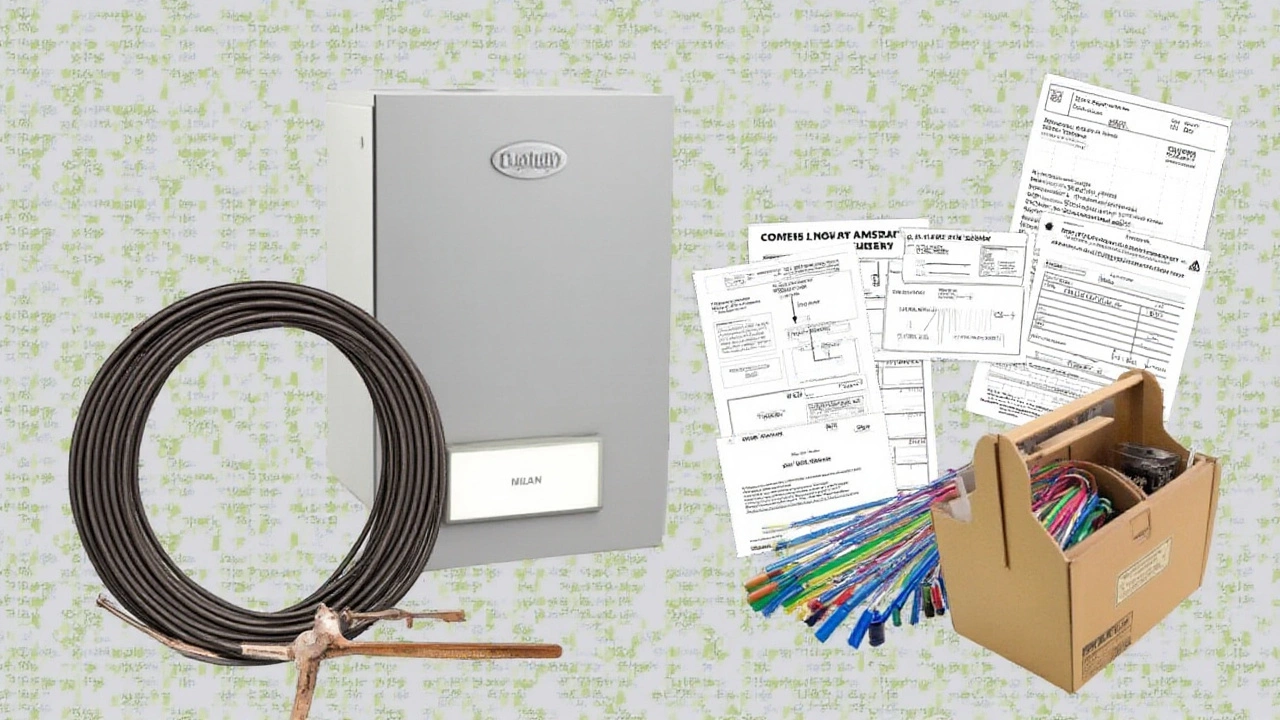
Saving Money on Boiler Replacement
Replacing your boiler can indeed seem like a hefty investment, yet there are several tangible ways to reduce costs without compromising on quality. First and foremost, it's crucial to start with a thorough assessment of your current system. Consulting a qualified heating technician to evaluate your existing setup can uncover whether a complete replacement is necessary or if a repair might suffice. This proactive approach can potentially save you a significant amount of money by avoiding unnecessary purchases.
It's also important to consider the timing of your purchase and installation. Off-season periods, typically during summer months, can be a safer bet for installation deals and offers. Manufacturers and retailers often slash prices to boost sales during these less busy times. This timing strategy is a simple yet overlooked tactic to make a boiler replacement more affordable.
"Choosing the right boiler can significantly impact future savings," explains Sarah Green, a consultant at Energy Efficient Homes. "Efficient models not only lower upfront costs but also reduce energy bills over time."
Another essential consideration is exploring alternative energy-efficient options. Modern boilers come with various ratings, with higher efficiency models potentially yielding considerable energy savings. Applying for government rebates and incentives, which are sometimes available for upgrading to energy-efficient models, can further offset costs. Scrutinizing energy star ratings and consulting with experts about long-term savings can make a tangible difference in your monthly expenditure.
When it comes to hiring professionals for installation, don't shy away from gathering multiple quotes. Comparing prices from different installers can lead to better deals. It's wise to emphasize quality and reviews rather than just selecting the lowest bid, as poor installations might cost more in the long run. You can also ask about package deals that might include annual maintenance, providing an added layer of savings.
Payment plans or financing options offered by some companies can make it financially easier. While spreading the cost over several months may include interest, it affords flexibility for households with strict budgets. Investigate all offers thoroughly to ensure they are financially prudent over time. Balancing upfront affordability with long-term costs is a key strategy in making the replacement process as painless as possible.
Lastly, you might want to engage in routine maintenance of your existing system if replacement isn't urgently needed, as well-maintained boilers tend to have longer lifespans. Regular checks can postpone the need for a new boiler, giving you ample time to prepare financially and explore all cost-saving avenues.
Future Benefits of a New Boiler
Installing a new boiler might seem like a costly project at first glance, but the benefits that unfold over time often justify the investment. One of the most significant advantages is the increased efficiency, which translates directly into cost savings. Modern boilers are engineered to consume significantly less fuel while delivering the same or even greater levels of heating. This enhanced efficiency can reduce your monthly utility bills by a substantial margin. In some cases, homeowners have reported up to a 20% decrease in energy costs.
Another major benefit is the improvement in home comfort. New boilers provide consistent and reliable heat, eliminating those frustrating cold spots in certain rooms that are common with older systems. This is often due to advanced features such as modulating burners, which adjust the heat output smoothly, maintaining a more even temperature throughout your home. Choosing the right boiler not only improves comfort but also enhances the home's overall atmosphere, making it cozy and inviting during those chilly months.
Moreover, new boilers are generally more environmentally friendly compared to their older counterparts. With stricter emissions standards now in place, most modern units are designed to reduce carbon footprint, thus making your home greener. This is a significant benefit for those who are conscious about their environmental impact and wish to contribute positively to climate initiatives. For those interested in a broader picture, environmental conservation is not only a personal win but a contribution to a needed global effort.
The technological advancements in heating systems also mean that maintenance becomes easier and less frequent with new models. Many new boilers are equipped with smart technology that provides alerts and data analytics to predict when maintenance is needed and identify potential issues before they become major problems. This not only extends the life of your system but also keeps repair costs low. According to a recent study by the Energy Efficiency Council, integrating smart technology could save households up to 15% on maintenance costs each year.
"The upfront cost of a new boiler can be daunting, but the decline in energy consumption and maintenance expenses post-installation provides financial relief and long-term savings," says Laura M. Anderson, a home energy expert.



